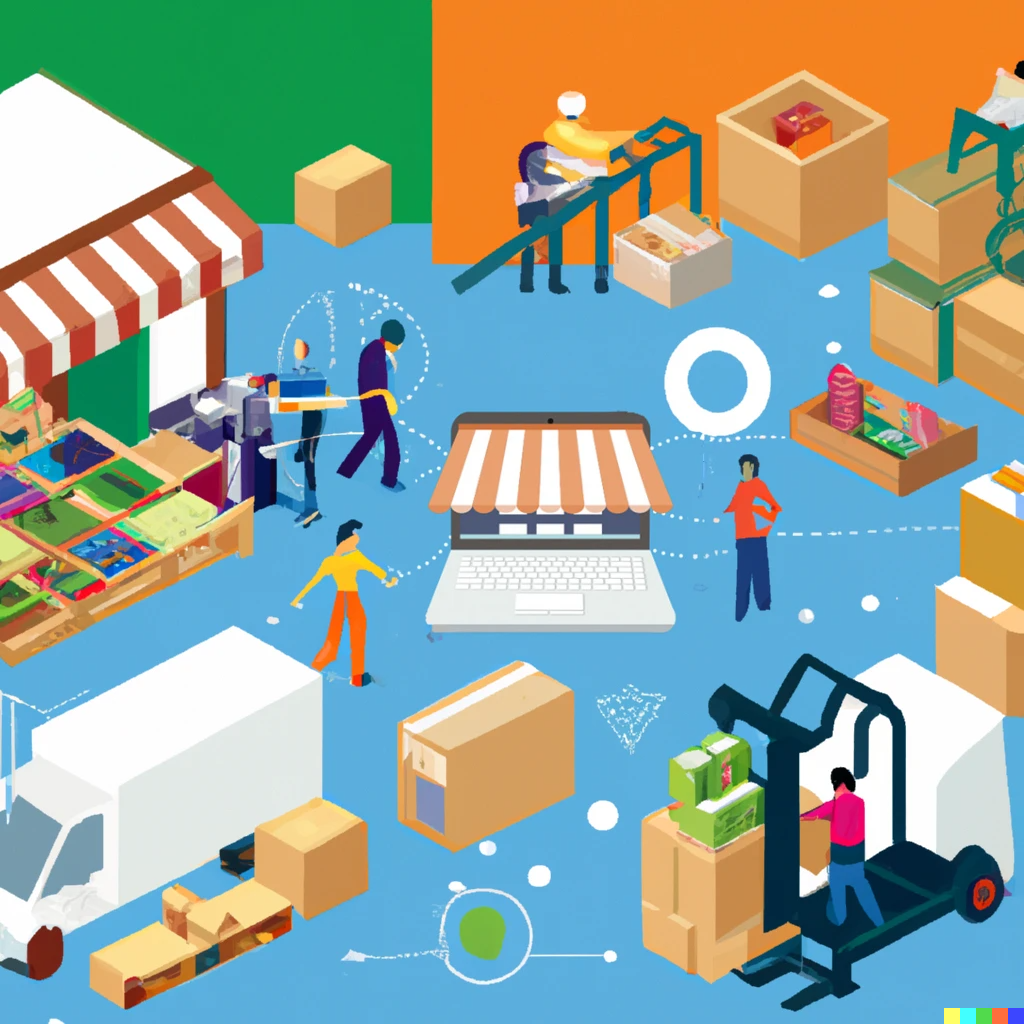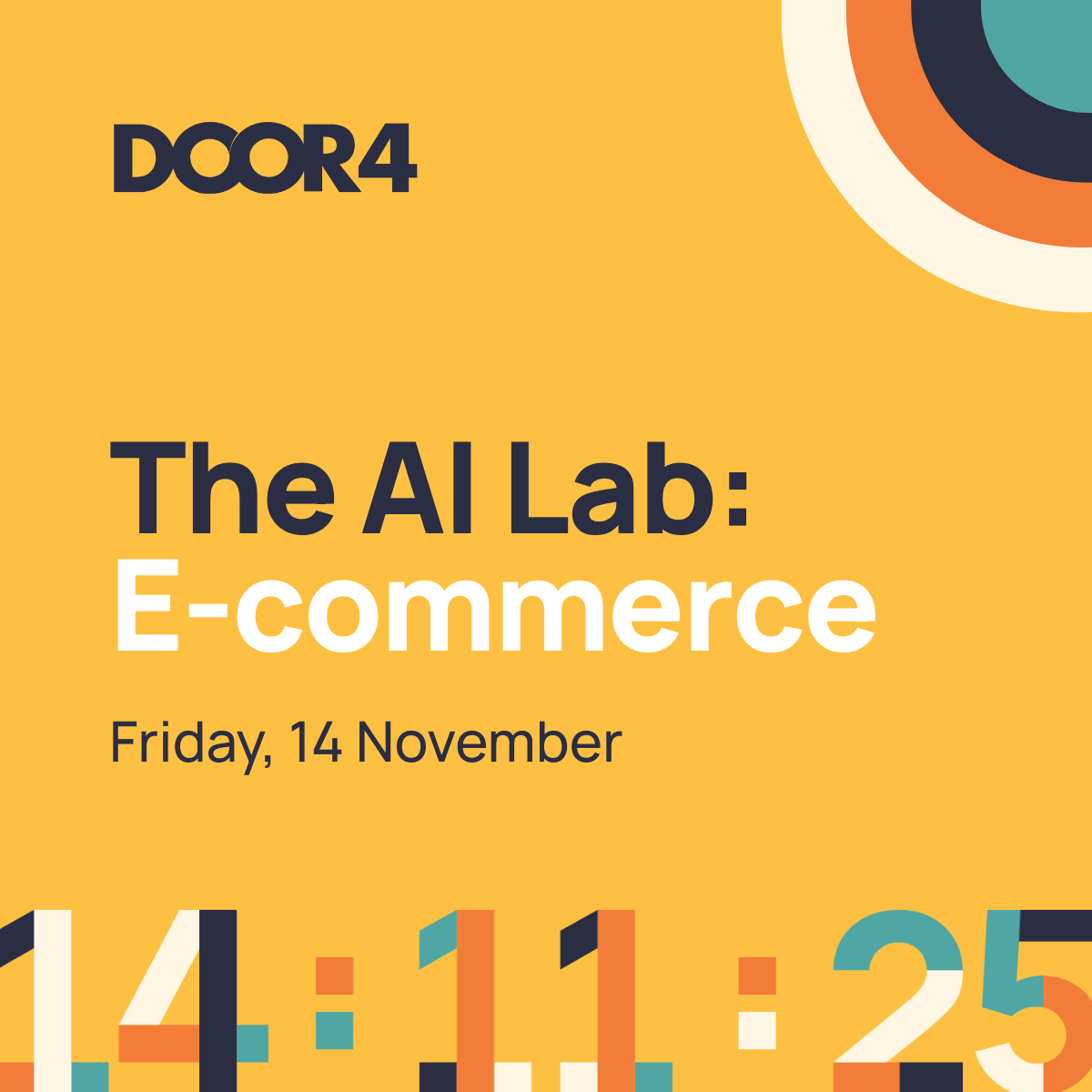Ready to explore the possibilities?
Request a quick call with our team to find out how the Innovation Explorer program can help your business take its next big leap into AI and automation.

Let’s Talk… Marketplaces with Chris Ball

We met with Chris Ball from helped.co.uk – a marketplace consultant with 10+ years of experience with brands and agency – to explore what opportunities and challenges these channels presented to brands and retailers.
Leon
Thanks for joining us, Chris. Great to have you with us.
Many of our clients are e-commerce operators – retailer or brands… How would you differentiate marketplace from regular e-commerce store operation, for those who haven’t got involved yet?
Chris
Marketplaces allow vendors to tap into a ready-made audience… an abundance of customers ready to part with their hard-earned cash!
In general, established marketplace platforms make it extremely easy to transact. Well-honed technology (best practice UX, simplified shipping and payment processes) make it effortless for the consumer – reducing friction and improving conversion rates.
Most platforms offer trust, support and protection – as a product of their scale – that would be more difficult for sellers to establish on their own website. Consumers also enjoy the ability to differentiate and compare product, pricing and delivery options – a more complex task when browsing multiple websites.
What are the pitfalls that marketplace operators face? What challenges do they encounter getting involved on these platforms?
Along with the benefits that marketplaces offer vendors, there is a little red tape and admin to contend with.
Keeping up to date with changes on marketplace operations can take some time and effort. Fashion retailers, for example, are hard at work as we speak updating their inventory data across dozens of sub-categories, especially apparel. In addition to that there can be restrictions around specific categories of product – such as personal safety and watches, where new sellers cannot begin to sell without prior authorisation.
Most marketplace vendors will tell you that fees, fees and more fees are the key pitfall of this channel. They vary across categories – and indeed, can consume much of the profit margin especially on lower margin products. Add to that the increasingly sponsor-led algorithm (after all, most popular platforms evolve towards pay-to-play) and it begins to really hit the vendor if they don’t have strong cost-control.
Many categories can be commoditised and price-centric – great for the customer – but difficult for the average seller if their competitors are driving a race to the bottom.
The mechanisms of marketplace usually mean that impeccable and consistent customer service is critical to maintaining seller reputation, and thus competitive advantage. Sadly this has led to situations where groups of buyers can game the system to their advantage. For example, if they say the item is damaged, they can avoid paying return fees, and that products under a certain value can attract automatic refund if they make enough noise.
I guess that, as a market evolves, it becomes more challenging for the participants. Competition creates winners and you therefore get losers.
How else has the marketplace environment changed over the last 10 years?
The most significant change has to be Ebay v Amazon… now known as Amazon v Ebay. Long gone are the days when marketplaces were clearing houses for old football boots… now you can find everything from BMW to high-end fashion; especially on Amazon.
The stats demonstrate that, over the last few years, many people start the buying journey at Amazon. They then do a great job of ensuring that the the journey ends with an ‘add to cart’ and the famous next-day delivery!
This has powered Amazon towards integration into our everyday lives. They no longer just provide us with physical products we need. They also entertain us and power our home automation!
Absolutely – I’ve been using Amazon since 2003 – and now I ask them to turn on my dining room TV every day! This is progress that few of us would have predicted 20 years ago.
With your crystal ball, what are your short and long term predictions for this space?
Any new players making progress? Any big changes on the horizon?
Amazon look like favourites to keep the crown for a while. Many have come and gone trying to gain the advantage, but they are so strong that they look to be locked in for a while yet.
However, vertical-specific marketplaces are beginning to open up space at the table.
We’ve been watching B&Q and The Range for home and garden, plus the likes of Vinted, StockX, Discogs and Etsy continue to thrive in their own niches.
One of the hot topics – albeit still slightly hyped… is the web3 arena. OpenSea – an NFT marketplace – collected over $300m in fees in January this year alone. This is definitely one to watch!

Thanks for your time, Chris. Great to have you here today.
Chris Ball is the founder of Helped.co.uk – The Marketplace Agency. You can find him on LinkedIn
Door4 opinions and insight.
We have a lot to talk about.Our latest articles, features and ramblings.
We explore performance marketing, AI, communications and optimisation.








